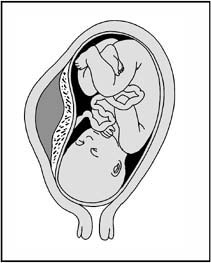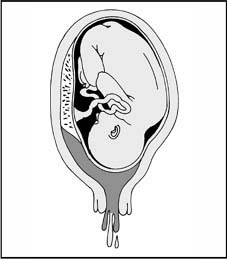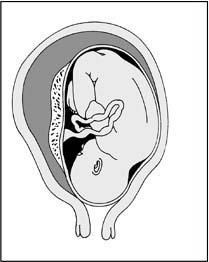Abruptio Placentae
With abruptio placentae, also called placental abruption, the placenta separates from the uterine wall prematurely, usually after the 20th week of gestation, producing hemorrhage. Abruptio placentae is most common in multigravidas—usually in women older than age 35—and is a common cause of bleeding during the second half of pregnancy. Fetal prognosis depends on gestational age and amount of blood lost; maternal prognosis is good if hemorrhage can be controlled.
Causes
In many cases, the cause of abruptio placentae is unknown. Predisposing factors include cocaine use, trauma (such as a direct blow to the uterus resulting from abuse or accidental trauma), placental site bleeding from a needle puncture during amniocentesis, chronic or pregnancy-induced hypertension (which raises pressure on the maternal side of the
placenta), multiparity of more than five, short umbilical cord, dietary deficiency, smoking, advanced maternal age, and pressure on the venae cavae from an enlarged uterus.
placenta), multiparity of more than five, short umbilical cord, dietary deficiency, smoking, advanced maternal age, and pressure on the venae cavae from an enlarged uterus.
Stay updated, free articles. Join our Telegram channel

Full access? Get Clinical Tree





